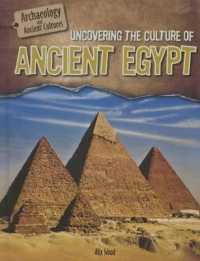- ホーム
- > 洋書
- > 英文書
- > Philosophy
Full Description
This is an open access title available under the terms of a CC BY-NC-ND 4.0 International licence. It is free to read at Oxford Scholarship Online and offered as a free PDF download from OUP and selected open access locations.
Very often we're uncertain about what we ought, morally, to do. We don't know how to weigh the interests of animals against humans, how strong our duties are to improve the lives of distant strangers, or how to think about the ethics of bringing new people into existence. But we still need to act. So how should we make decisions in the face of such uncertainty?
Though economists and philosophers have extensively studied the issue of decision-making in the face of uncertainty about matters of fact, the question of decision-making given fundamental moral uncertainty has been neglected. Philosophers William MacAskill, Krister Bykvist, and Toby Ord try to fill this gap. Moral Uncertainty argues that there are distinctive norms that govern how one ought to make decisions. It defends an information-sensitive account of how to make such decisions by developing an analogy between moral uncertainty and social choice, arguing that the correct way to act in the face of moral uncertainty depends on whether the moral theories in which one has credence are merely ordinal, cardinal, or both cardinal and intertheoretically comparable. It tackles the problem of how to make intertheoretical comparisons, discussing potential solutions and the implications of their view for metaethics and practical ethics.
Contents
Introduction
1: Why We Should Take Moral Uncertainty Seriously
2: Maximizing Expected Choice-Worthiness
3: Ordinal Theories and the Social Choice Analogy
4: Interval-Scale Theories and Variance Voting
5: Intertheoretic Comparisons of Choice-Worthiness
6: Fanaticism and Incomparability
7: Metaethical Implications: Cognitivism Versus Non-Cognitivism
8: Practical Ethics Given Moral Uncertainty
9: Moral Information
Conclusion
Bibliography








